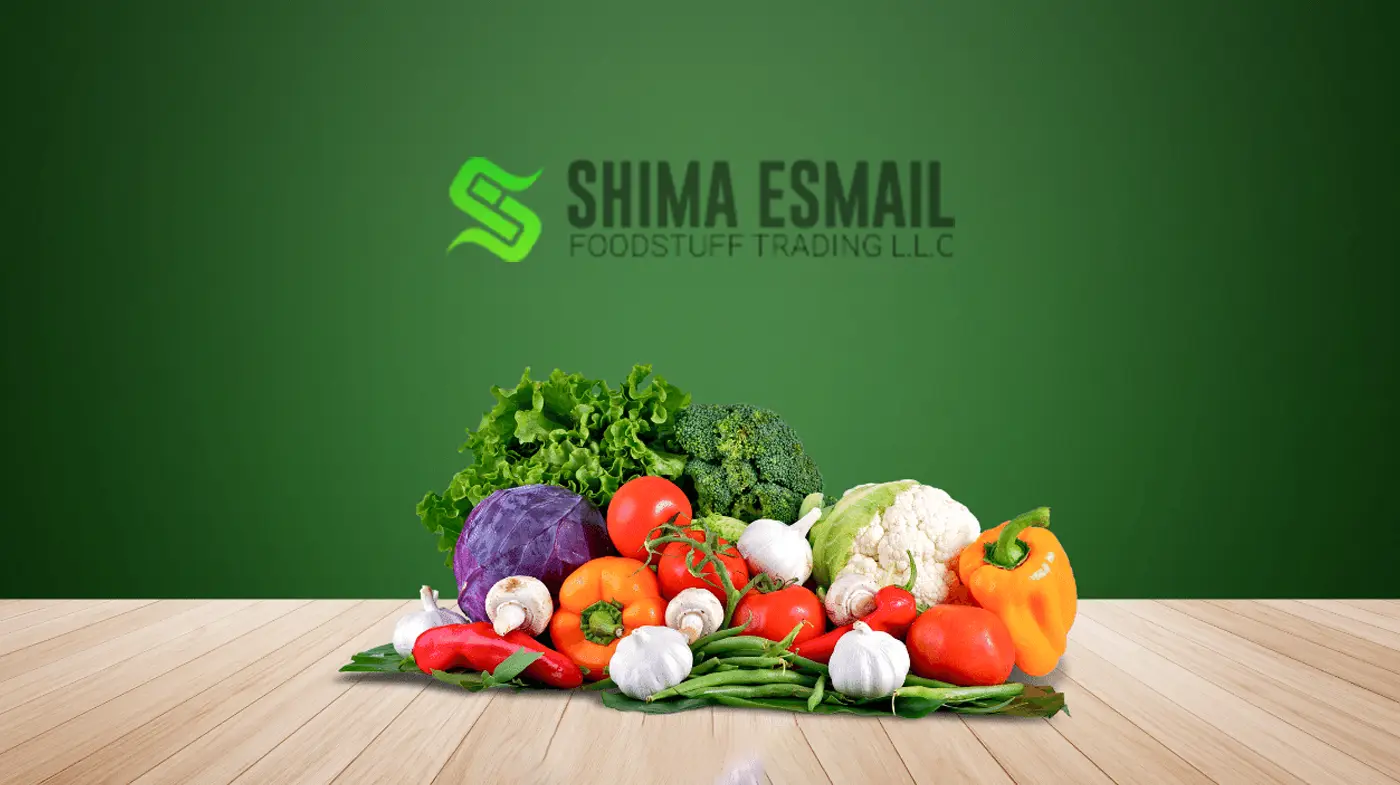Exporting Food Products from the UAE to Asian and African Countries: Opportunities and Challenges

Over the past two decades, the United Arab Emirates (UAE) has emerged as a pivotal hub in global food trade. With its strategic location, advanced infrastructure, and business-friendly regulations, the UAE serves as a gateway between East and West—making it an ideal launching pad for the export of food products to both Asian and African countries.
As populations across Asia and Africa continue to grow rapidly, so does their demand for imported food products. Urbanization, rising incomes, and changing dietary preferences are creating enormous market opportunities for exporters based in the UAE. However, with these opportunities come a variety of logistical, regulatory, and competitive challenges that must be carefully navigated.
This article explores the current landscape of food exports from the UAE to Asian and African markets, highlighting the major opportunities, common pitfalls, and best practices to ensure sustainable and profitable trade operations.
Why the UAE Is a Strategic Hub for Food Exports
The UAE offers a unique combination of geographical advantage and top-tier logistics that few other countries can match. Situated at the crossroads of Europe, Asia, and Africa, it allows exporters to reach billions of consumers within just a few hours of air or sea travel. Major ports such as Jebel Ali (Dubai) and Khalifa Port (Abu Dhabi) are among the busiest in the region, offering state-of-the-art facilities and seamless connectivity.
In addition to world-class infrastructure, the UAE government has invested heavily in creating free trade zones such as JAFZA and KIZAD, which offer tax exemptions, simplified customs procedures, and full foreign ownership—conditions that are especially favorable to food traders and logistics providers.
Moreover, the country’s regulatory environment is streamlined for importers and exporters. The UAE’s alignment with international food safety and quality standards makes it easier for goods to be repackaged, relabeled, and re-exported without the complexities found in other nations. This has turned the UAE into a re-export powerhouse, particularly in the food and beverage sector.
Target Markets in Asia and Africa
The UAE is ideally positioned to serve as a distribution center for exports to high-demand regions in both Asia and Africa.
In Asia, countries like Iran, India, Pakistan, Afghanistan, and Bangladesh represent significant markets for staple foods, spices, canned goods, and edible oils. Iran, for instance, continues to rely heavily on UAE intermediaries for a wide range of food imports due to logistical convenience and political factors.
In Africa, nations such as Kenya, Ghana, Nigeria, Ethiopia, and Egypt have rapidly expanding populations and urban centers where demand for imported food continues to rise. These countries often face food security issues, seasonal shortages, or domestic production constraints—making imports critical to meet consumer needs.
Exporters must be mindful of local tastes and dietary habits when selecting which products to target. For instance, while basmati rice and pulses are highly popular in South Asia, maize flour, vegetable oils, and tinned fish have higher demand in parts of Africa.
Types of Food Products Commonly Exported
The UAE’s strategic position as a re-export hub makes it a major player in various food product categories. Some of the most commonly exported food products from the UAE to Asia and Africa include:
- Grains and Pulses: Grains such as rice, wheat, and corn, along with pulses like lentils, chickpeas, and beans, are in high demand in both Asian and African markets. Countries in Africa, for example, often rely on imports to supplement local agricultural production, especially during periods of food insecurity or drought.
- Edible Oils: Vegetable oils, especially palm oil, soybean oil, and sunflower oil, are essential in many cuisines, particularly in Africa and South Asia. The UAE is a key re-exporter of these products, thanks to its access to global suppliers and processing facilities.
- Canned Foods and Beverages: Canned products, including fruits, vegetables, meats, and beverages, are increasingly popular in emerging markets. These products offer convenience, longer shelf life, and are often more affordable than fresh alternatives. Dubai is a key processing center for these products, enabling them to be re-exported across the globe.
- Spices, Dried Fruits, and Nuts: Middle Eastern cuisine, as well as cuisines in South Asia and parts of Africa, relies heavily on spices and dried fruits. UAE-based exporters play a central role in supplying these essential ingredients to neighboring regions.
- Frozen Foods and Meat Products: Frozen foods, including ready-to-eat meals and meat products, are becoming increasingly popular in both Asia and Africa, particularly in urban areas where time constraints make convenience food attractive. The UAE’s facilities allow for quick freezing and efficient packaging, ensuring food safety standards are met.
Exporters must ensure that their products meet the specific requirements of target countries, both in terms of quality and packaging. Packaging, in particular, must comply with local regulations, including language requirements for labeling, health certifications, and product ingredients.
Opportunities for Exporters
The food export sector offers significant opportunities, especially as developing nations in Asia and Africa see their populations grow and urbanize. Key opportunities include:
- Emerging Consumer Markets: Asia and Africa are home to some of the fastest-growing consumer markets in the world. As disposable incomes rise, these regions are experiencing shifts in consumer behavior, with more people turning to packaged and processed foods. Additionally, younger generations are seeking new flavors and foods that were previously unavailable in their local markets, offering new opportunities for exporters.
- Trade Agreements and Regional Cooperation: The UAE is part of several free trade agreements that facilitate easier access to foreign markets. For example, the UAE has strong trade ties with the GCC, ASEAN countries, and the African Union, which helps minimize tariffs and trade barriers for UAE-based exporters.
- Growing Urbanization and Food Consumption: Urbanization continues to rise in both Asia and Africa, bringing with it an increased demand for processed, packaged, and convenience foods. Cities such as Dubai, Abu Dhabi, Lagos, Nairobi, and Cairo are rapidly expanding, creating a lucrative market for food products that can cater to the growing urban middle class.
Exporters can tap into these trends by targeting products that align with changing tastes, such as healthy and organic food options, as well as sustainably sourced ingredients that appeal to environmentally conscious consumers.
Challenges Exporters Must Address
While there are significant opportunities, food exporters from the UAE also face several challenges in reaching the Asian and African markets. Some of the major hurdles include:
- Regulatory Compliance and Certification: One of the biggest challenges for exporters is navigating the complex regulatory environment in different countries. Food safety, hygiene, and health certification requirements can vary from one country to another. For instance, halal certification is a must for products exported to Islamic countries, while other nations may require additional health certificates or inspection processes. Exporters must ensure their products meet these varied requirements to avoid delays or rejection at customs.
- Customs and Border Controls: Although the UAE has streamlined processes for exports, customs regulations in destination countries can still pose significant challenges. Tariffs, non-tariff barriers, and delays in clearing goods through customs are common issues exporters face, especially in countries with weaker infrastructure or unstable political climates.
- Packaging and Labeling Standards: Different countries have unique packaging and labeling requirements. For example, in many African countries, labels must include specific information such as nutritional content, expiry dates, and local language translations. Failing to meet these requirements can lead to products being seized or returned.
- Logistics and Transport Issues: The logistical complexities involved in food exports can be daunting. Weather disruptions, transport bottlenecks, and limited access to quality shipping infrastructure in some regions may cause delays or increased costs. Understanding the best transportation methods for specific food products is critical, especially when dealing with perishable items.
Best Practices for Successful Food Export
To navigate the challenges and maximize opportunities in the Asian and African markets, exporters should adopt the following best practices:
- Conduct Thorough Market Research: Understanding the local market demands, consumer behavior, and regulatory environment is crucial. Market research helps exporters tailor their products and marketing strategies to meet the specific needs of each target market.
- Build Strong Local Partnerships: Partnering with local distributors, agents, or wholesalers can help overcome the barriers of distance and unfamiliarity with the market. Local partners are invaluable in understanding consumer preferences and navigating the intricacies of the local supply chain.
- Focus on Food Safety and Quality Standards: Adhering to international food safety standards is essential for gaining trust and credibility in foreign markets. Ensuring that products are safely handled, processed, and packaged will help exporters maintain consistent product quality.
- Leverage Technology for Efficiency: Using digital platforms, such as e-commerce sites and digital payment systems, can streamline exports, particularly for smaller businesses. Embracing technology will also enable exporters to efficiently manage supply chains and track shipments.
- Diversify Product Offerings: As tastes and preferences evolve, it is essential for exporters to diversify their product range. Offering healthy, organic, or specialized food options can attract a broader customer base, particularly in more developed urban centers in Asia and Africa.
Future Trends in the Food Export Sector
As the global food trade landscape continues to evolve, several key trends are likely to shape the future of food exports from the UAE to Asia and Africa:
- Digitalization and E-commerce Exports: The rise of online food retail platforms presents new opportunities for exporters. E-commerce is rapidly growing in both Asia and Africa, particularly in countries like India and South Africa, where consumers are increasingly buying food products online.
- Sustainability and Organic Products: There is a growing demand for organic, sustainable, and ethically sourced food products. Consumers are becoming more conscious of the environmental and health impacts of the foods they buy, and this trend is expected to accelerate in both Asia and Africa.
- Climate and Sustainability-Related Shifts: The food export industry must adapt to the challenges posed by climate change. Disruptions in agriculture and food production due to extreme weather conditions are becoming more common. Exporters will need to explore sustainable sourcing and resilient supply chain strategies to mitigate these risks.
Conclusion
In conclusion, the UAE is strategically positioned to capitalize on the growing demand for food products in Asia and Africa. By focusing on emerging consumer markets, understanding local regulations, and adapting to evolving consumer preferences, exporters can tap into the vast opportunities that these regions offer. However, challenges such as regulatory compliance, logistics, and customs must be addressed to ensure smooth operations.
With the right strategies in place, UAE-based exporters can thrive in these expanding markets, offering quality products to meet the growing needs of consumers in both Asia and Africa.
About Shima Foodstuff
Shima Esmail Foodstuff Trading L.L.C is an experienced and reliable player in the UAE’s food export sector. With years of expertise in navigating complex trade regulations and a commitment to delivering high-quality products, Shima Foodstuff offers seamless support to companies seeking to expand their food exports to Asian and African markets.

